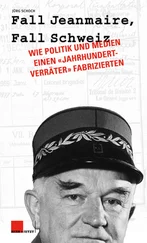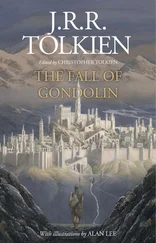The party that Fan’s clan threw for Liwei was especially memorable, as they hired musical performers and had a dunking station with water stocked with some of our very own fish, swimming around clueless as the clan patriarch — a famously grumpy man who has since passed — sat on the plank in his pajamas, kids and adults alike taking their turn hurling a ball at the target beside him. Even he was giddy that day, making the funniest faces for the littlest ones, all the while gamely goading and taunting the long line of throwers. He got plenty wet but climbed back up each time with a smile, knowing that someone in his line would be attaining the heights.
Fan was, of course, not yet present, but with all the stories she must have heard over the years, she must have felt she had been there herself, chanting her sibling’s name with the rest of the crowd at party’s end as he raised his fists over his head, which was donned with a customary crown of herbs and flowers grown in our facility. With tears in his eyes, he waved and bowed good-bye to us, and we shouted: Liwei is our champion! Fare thee well, Liwei!
The understanding, of course, is that we’ll never see this person again, that he or she will not return, even for a visit. For what good would that do? What lasting joy would it bring, to us or to them? Isn’t it better that we send them off once and for all beneath the glow of carnival lights, with the taste of treats on our tongues, rather than invite the acrid tang of doubt, and undue longing, and the heart-stab of a freshly sundered bond? Isn’t it kinder to simply let them exit the gates, and for us to turn away, too, and let our thoughts instead draft up on their triumphs to come?
Because it’s known which Charter they’re headed for, it’s easy enough to picture, given the scads of material you can browse, spying the streets and fields and commercial areas of the village, its layout rarely rectilinear like ours, perhaps to heighten the sense of insularity, perhaps so that you don’t have to see the disheartening terminus of any path or lane. We don’t as a community much concern ourselves with Charter life except in this one regard, but ultimately our annual interest remains an abstraction, seeing the promoted child the same way we might imagine a friend on a foreign tour, say, climbing the steps of some postcard ruin or sampling a local delicacy, giving ourselves just enough detail for shape and color but not for any lingering anxieties, such as how he’ll be welcomed by his new family or accepted at school, which career he’ll pursue, or who will be his mate. You just see that he’s traveled to a kind of heaven, if that’s in your belief system, a place that is presumably better in every way than it is here, and surely never worse.
Fan certainly could look up where Liwei had been accepted, a village named Seneca Hamlet. It’s a simple matter of record. And although Charters are indeed mobile, and can buy a seat on a global and pop in on other Charter villages around the world, and even have the right to live there if they can afford it, very few choose to leave their home village permanently, even for one within the region. Like everybody, they rely on their families and friends and associates for not just the practicalities but for moral support as well. So chances were good enough that Liwei was still in the same village. And probably she couldn’t help but wonder, too, as we would, whether he had successfully assimilated into the life of his adoptive family and community, and taken up a sustaining career, and, most of all, enjoyed the rarefied prosperity that his exceptional performance had surely promised him.
That it might be the very Charter that she and Quig and Loreen were now again speeding toward after the encounter with the Nickelmans would be too coincidental. And yet, even before she was struck that very first night by Quig’s car, she must have had a northward heading in mind, and in this light her initially compelled and then willing residence at the Smokes can be seen as an instance of her singular patience, and faith. Again, we don’t speak of faith much in B-Mor, as there’s really no religious or spiritual practice to speak of, no worship of any kind either in public or within the households. It’s not clear what our people think of the existence of God, or the afterlife, or why we are here. What Fan’s position was on these questions will never be known. She simply had a faith — an amazing, profound faith — that like some great waterfall would not stint or diminish. Where it came from or how she nurtured it is a mystery, and what we can see is that she drew upon it in every episode of her quest, for fortitude and strength. It is thus partly faith, and solid reasoning, at least from Fan’s perspective, that her never-met sibling might be helpful in her aim of reuniting with Reg. Liwei was a Charter, after all, and by definition would have the necessary means or connections or maybe even some power.
After narrowly escaping the lair of the Nickelmans and camping well off the road to pass the night, it took them another full day on the poor roads to reach their destination. Fan drove the entire way, whatever substance Loreen and Quig had been given still affecting their systems. Fan had to stop several times for each of them to vomit on the side of the road, Quig especially pale and sweaty and hardly able to support himself. Fan had to come around the car and help him, using all the strength in her legs to buttress and lift him up from his sickly crouch and push him into the rear seat, where Loreen lay back against her window. At the few service stations along the way, Fan had to buy criminally expensive water to slake their extreme thirst, and if they tried to eat anything, they soon felt sick again. At one point Loreen soiled herself and Fan helped clean her and get fresh clothes from her backpack, after which Loreen mumbled that she was sorry for what she had said, after which Fan simply nodded. She’d hardly registered the slur, given the extremity of the moment, though while driving she did note the epithet. She’d known only B-Mor and so had all the preceding generations of her clan, New China a most distant notion that was hardly ever mentioned, and if so, somewhat disparagingly, say, to point out someone’s haughty airs, such as That’s some N-C style! Yet in bloodlines it was where she came from, it was what she looked like, and when she mused about it now, she wondered whether the legacy should mean more to her, especially as she was carrying a child. It was a talisman that was hers but which she kept solely on a shelf, an object that might indeed be powerful but only if she brought it down and pressed it to her brow and asked something significant of it. But what was that? And how would she ever come to know?
Before they got onto the stretch of well-kept toll road that would take them to the Charter village, Quig took the wheel. They didn’t want to be turned away as diseased so he tried to clean himself up but he still looked ghoulish, his eyes weary and bloodshot, his hair greasy-looking and matted in a lopsided fashion. Loreen appeared no better, crystals of sweat and dried spit clinging to the corners of her mouth. But when he pulled up to the guardhouse of the Charter village, he gave their names and the guard checked them against his screen and scanned their eyes, not bothering with Fan at all, assuming she was either theirs or on offer.
The village sign read Seneca, simply Seneca, and it was the first Charter village Fan had ever visited in person. Was it the same? It was not exactly the name she had looked up, but it was familiar. The village didn’t look totally strange to her, perhaps for the viewing she’d done of other villages, many of which were similarly laid out by one of the two major construction firms. From a satellite view, everything looks crisp and tailored, the curves of the streets and sidewalks arcing out in equal increments from a central open space, like ripples in a lake. Whenever she browsed, and it was not often, she liked to peer in close with the ultrazoom, inspecting the waxed finishes on the cars and ruler-straight joints of the sidewalks (never any renegade cracks) and the tiles of the roofs, which were not plastic or asphalt shingles like those of our free-standing houses but made, incredibly, from a piece of natural stone, each one with a distinct pattern and hand and its own earthy or flinty shade.
Читать дальше












